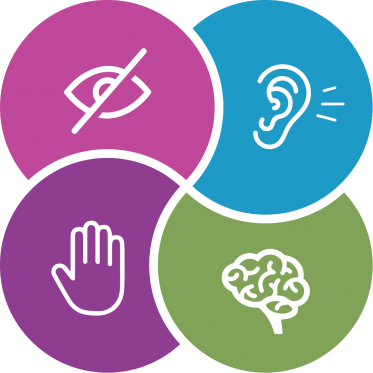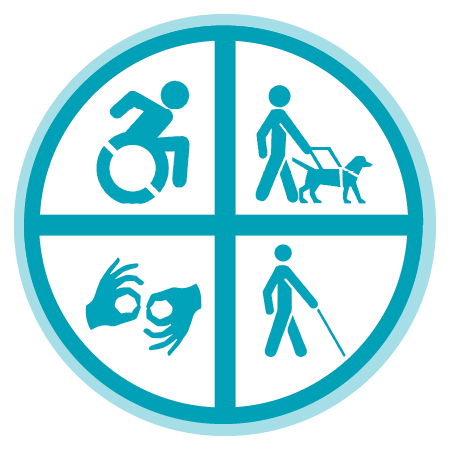How to Be Accommodating?
{This article continues where our article ‘Accommodating Disability & Diversity in the Workplace’ left off in Part I: Why Be Accommodating?}
How to Be Accommodating?
A good start for all employment law and liability risks is to have all workplace policies written, legally-advised, and continually-reviewed in the Employee Handbook to keep in conformance with the law and maintain control over the workplace; annual training is also recommended. When it comes to accommodations and new applicants or current employees…
A good start for all employment law and liability risks is to have all workplace policies written, legally-advised, and continually-reviewed in the Employee Handbook to keep in conformance with the law and maintain control over the workplace; annual training is also recommended. When it comes to accommodations and new applicants or current employees…

Accommodations are diverse and suited to each individual employee; there are few one-size-fits-all accommodations. Instead, it’s case-by-case and individualistic. Most important in learning to be accommodating is listening and guiding an “interactive process.” Develop a process to handle accommodation requests that encourages discussion and be sure managers are trained in the process.
As the EEOC (Equal Employment Opportunity Commission) puts it, “Employer-employee cooperation and flexibility are key to the search for a reasonable accommodation.”
In the end, an interactive process is merely a long-running conversation with communication as the name of the game. It is to ask a series of questions:

- What does the company need of the employee or applicant?
- What does the employee need in order to meet these requirements?
- How can the employer assist the employee in best applying themselves on the job?
The first question is going to answer the “essential functions” of the job—be specific in precisely what is necessary for the job itself and what tasks must be performed to fulfill the job role. Other tasks, considered “marginal functions,” may become accommodations: done differently, at a different time, or passed to another employee more able to complete the task(s) (and so long as it would not interrupt their job or is swapped for something else). Remember that some applicants may need accommodations to get through the application process in order to have an equal, non-discriminatory chance at employment.
The second question introduces the brainstorming process for how an employee may be assisted in adapting to the job’s strictest requirements. If an applicant or employee is unable to do so even with accommodations, they may be reassigned elsewhere (if possible) or carefully terminated with poor performance reviews (see references below), as with other employees.
The third question offers the opportunity to allow a disabled, diverse, or ‘dad’ employee to adapt best to a job in an accepting, understanding environment: moving to a different work space; restructuring the job; agendas in advance or other learning-disability assistance; modifying work schedules or supervisory methods; assistive technology, listening devices, or interpreters; time off for religious services or breaks for prayer; slight changes to dress-code for religious garb or grooming; additional breaks for medically-necessitated meals; leave for early-child parenting or a room for pumping milk; a closer parking spot; physical changes to the facilitators; reassigning a position. There are endless accommodations, even small ones, which may improve the workability of an employee remaining well-fitted to their job. This should keep performance from being a problem later on and offers support to employees who should pay it forward with hard work. No employer is expected to lower production standards or eliminate primary job responsibilities as part of accepting accommodations – it is merely about assisted adaptation.
The rest of the process involves EEOC and potentially healthcare providers. Don’t expect the conversation to be over once the accommodations are considered and applied: checking in is important, as accommodations may change with time. Speak with the EEOC about available options—they even have an ergonomics program for disabled individuals!

It’s important to note that employees don’t always know the accommodations available or how to properly ask for them, only that an adjustment is necessary, so it’s wise for employers to know what’s available and to listen keenly to the needs of their employees, especially those with known or suspected disabilities or differences. Requests for accommodations may arise without official language; it can be as simple as a confession of difficulty and a wish for some kind of assistance or change. Do be sure to keep such information—medical files, accommodation requests—as confidential as possible (beyond necessitated supervisors) and separated from usual personnel files.
It’s also worth remembering that employment equality doesn’t mean everyone receives the same assistance: it means all employees receive the assistance they need to do their jobs to their fullest potential and to be the best employees they can be. Most importantly, a successful accommodation for an employee equates to a a happier, better-fitted work-force with employers who specifically and individually have their backs.
Finally, let the professionals have your back too: if you have questions or are experiencing difficulty finding the right accommodation, the U.S. Department of Labor’s Job Accommodation Network may be able to help with their free, confidential accommodation assistance. Otherwise, check out the links below for more information!
That’s all for us here at the HR Engineers. May your future be as accommodating as you are!
Important References
Disability Accommodations Tips: short with further resources, including a similar page on Religious Accommodations.
A Small Business checklist from the Equal Employment Opportunity Commission – follow these instructions and you’re well on your way!
Reasonable Accommodations Tips for Manager Responsibilities of Small Businesses. Well worth reading and passing along to your managerial staff! Does your organization have a Disability Program Manager?
Types and Examples of Reasonable Accommodations.
Detailed Religious Accommodations.
Disability Discrimination (and how to avoid it!)
Updated Americans with Disabilities Act Questions & Answers.